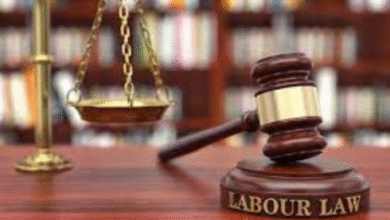Choosing the right civil lawyer for your case is a crucial step in ensuring that your legal rights are protected and that you have the best chance of achieving a favorable outcome. Civil law encompasses a broad range of disputes, from contract disagreements to property issues and family matters. Whether you are facing a personal injury case, dealing with a contract breach, or navigating a complex divorce, having the right legal representation can make all the difference. In this article, we will explore key factors to consider when choosing a civil lawyer, and how to make sure you are hiring the best professional for your needs.
Understanding Civil Law
Before delving into how to choose the right civil lawyer, it is essential to understand what civil law entails. Unlike criminal law, which deals with offenses against the state, civil law handles disputes between individuals or organizations. These disputes often revolve around compensation for harm or enforcing contractual agreements. Common areas of civil law include:
- Personal Injury: Cases where someone is harmed due to the negligence of another, such as in car accidents or medical malpractice.
- Family Law: Divorce, custody battles, alimony, and related matters.
- Contract Law: Disputes over agreements, services, or purchases.
- Property Law: Disputes over land ownership, tenancy, or property damage.
With such a wide variety of civil cases, it’s crucial to find a lawyer with expertise in the specific area your case falls under.
Factors to Consider When Choosing a Civil Lawyer
When it comes to choosing the right civil lawyer, several factors will influence your decision. Each of these should be carefully evaluated to ensure that the attorney you select is not only experienced but also the right fit for your case.
1. Specialization and Experience
Civil law is a broad field, and lawyers often specialize in specific areas. When choosing a lawyer, make sure they have experience handling cases similar to yours. For instance, if you’re dealing with a contract dispute, a lawyer with expertise in contract law will be better suited to handle your case than a generalist.
You should also ask about the lawyer’s track record. A lawyer who has successfully handled numerous cases like yours will have a deeper understanding of the legal intricacies and be better equipped to anticipate challenges.
Questions to ask include:
- How many cases like mine have you handled?
- What was the outcome of those cases?
- How long have you been practicing in this area of law?
2. Reputation and Reviews
A lawyer’s reputation can tell you a lot about their skills and professionalism. One of the best ways to gauge a lawyer’s reputation is by checking online reviews and testimonials from past clients. Legal directories, such as Avvo, Martindale-Hubbell, or Super Lawyers, offer detailed reviews and ratings that can provide insight into a lawyer’s competence and ethical standards.
Word of mouth is another great resource. Ask friends, family, or colleagues if they have any recommendations. Personal referrals can be particularly useful, as they offer firsthand accounts of a lawyer’s abilities and approach to client relationships.
3. Communication Skills
Effective communication is critical in a legal case. You will be working closely with your lawyer, so it’s essential to choose someone who communicates clearly and regularly. During your initial consultation, pay attention to how the lawyer explains legal concepts. Do they make the effort to break down complex legal jargon into understandable language? Are they prompt in responding to your questions and concerns?
A lawyer who is a good communicator will keep you updated on the progress of your case and will make sure you understand your legal options. They will also be able to effectively advocate for you in court or during settlement negotiations.
Questions to ask about communication include:
- How often will you update me on the case?
- Who will be my main point of contact?
- How quickly do you respond to emails or phone calls?
4. Fees and Billing Structure
Legal fees can vary significantly depending on the lawyer, the complexity of the case, and the location. It’s important to understand the lawyer’s fee structure before you hire them to avoid any surprises down the road. Some lawyers work on an hourly rate, while others may charge a flat fee or work on a contingency basis, where they only get paid if you win your case.
During your consultation, ask the lawyer about their billing practices. Make sure to ask for an estimate of the total cost and whether there will be any additional expenses, such as court filing fees or costs for expert witnesses.
Key questions to ask include:
- What is your fee structure?
- Are there additional costs I should be aware of?
- Do you offer payment plans or contingency arrangements?
5. Availability
Civil cases can take time, and you want to ensure that the lawyer you choose has the availability to dedicate to your case. Some lawyers handle a large volume of cases, which can affect how much time they can devote to individual clients. During your consultation, ask about their current caseload and whether they have the time to focus on your case.
It’s also important to clarify who will be working on your case. In some firms, junior associates or paralegals handle much of the legwork, while the lead attorney only steps in during key moments. Make sure you are comfortable with the team that will be working on your case and that the lead lawyer will be available when needed.
6. Local Knowledge
Laws can vary by state, and even by city or county, so hiring a lawyer who is familiar with the local legal system can be a significant advantage. A local lawyer will have established relationships with judges, opposing counsel, and court staff, which can help streamline the legal process.
Additionally, local lawyers will be more familiar with the intricacies of local laws and court procedures. This knowledge can help them navigate your case more effectively and can lead to better outcomes.
7. Personality and Compatibility
Legal battles can be stressful and drawn-out processes. As such, it’s important to choose a lawyer you feel comfortable with. The right lawyer will not only be professional but will also take the time to understand your concerns and build a strong working relationship.
During your consultation, consider whether the lawyer listens to you and takes your concerns seriously. Are they approachable and empathetic? Do you feel confident in their abilities? Since you’ll likely be spending a significant amount of time working together, having a lawyer whose personality and approach aligns with your own can make the legal process less overwhelming.
Steps to Take Before Making Your Decision
Now that you know what to look for in a civil lawyer, here are some practical steps to take before making your final decision:
- Consult Multiple Lawyers: Don’t settle on the first lawyer you meet. Consulting with a few different lawyers will give you a better sense of who is the right fit for your case. Many lawyers offer free initial consultations, so take advantage of this to compare their experience, approach, and fees.
- Prepare for the Consultation: Bring all relevant documents to the initial meeting, such as contracts, medical records, or court documents. This will allow the lawyer to assess your case more accurately and provide you with tailored advice.
- Ask Detailed Questions: Be thorough in your inquiries during the consultation. The more you know upfront, the better equipped you’ll be to make an informed decision.
- Follow Your Instincts: After weighing all the factors, trust your instincts. Choose a lawyer who makes you feel confident in their ability to handle your case and who you feel comfortable working with.
Conclusion
Choosing the right civil lawyer can be a game-changer for your case. By focusing on specialization, experience, communication skills, and compatibility, you can ensure that you are selecting a lawyer who will effectively represent your interests. Take the time to do your research, consult with multiple lawyers, and ask detailed questions before making your final decision. With the right lawyer by your side, you’ll have the support and expertise you need to navigate the complexities of civil law and achieve the best possible outcome.



